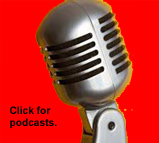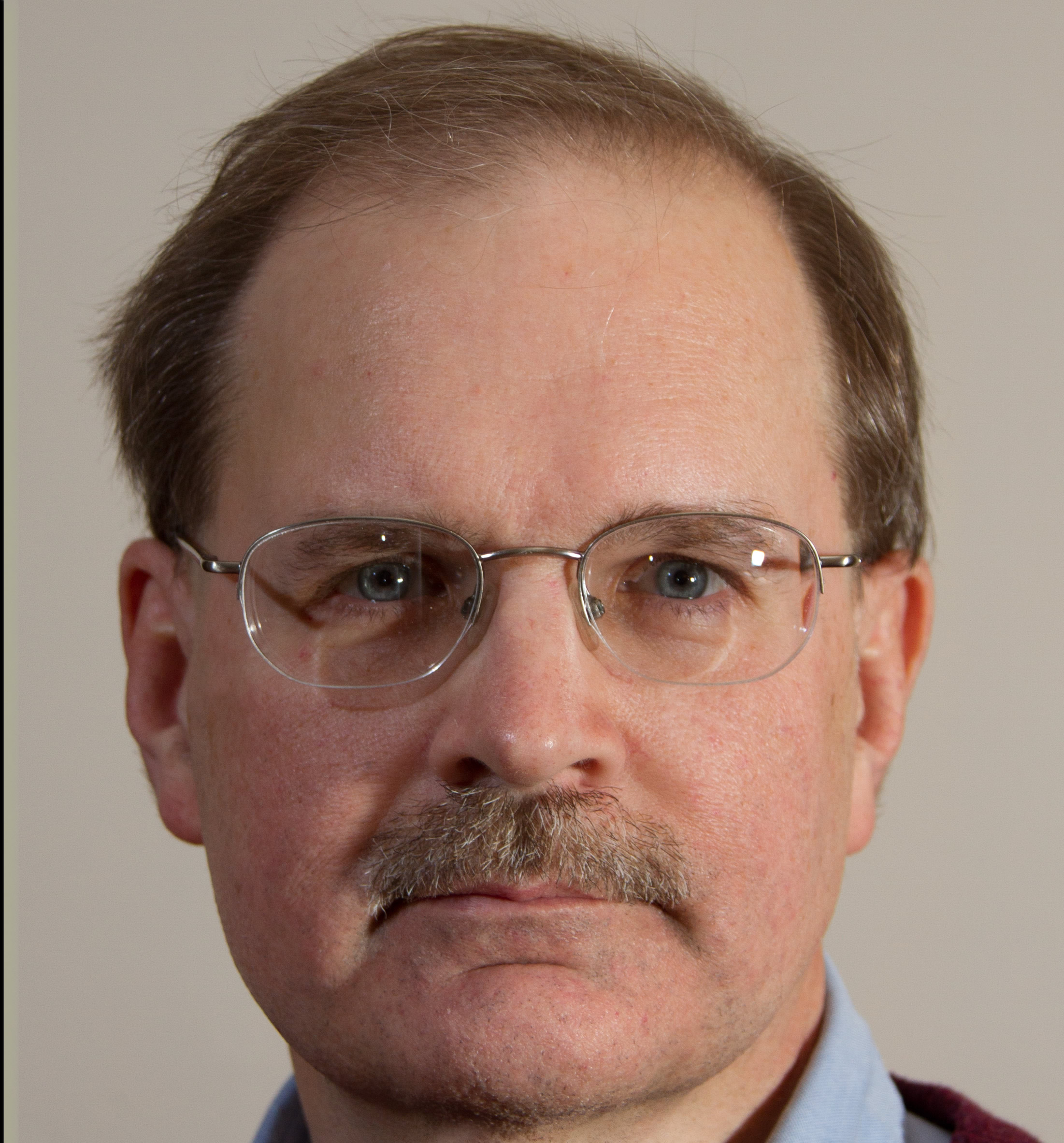 |
June 2015
Volume 34 Number 6 |
|
|
| IWOC: The Premier Resource for Professional Writers
|
|  | LinkedIn |
 |
Facebook |
|
 |
Twitter |
| IWOC WELCOMES
New Member
Wendy Smith
|
|
|

Ruth Duskin Feldman, who
died in May, gained fame at the age of seven
as an original member of the Quiz Kids radio and
TV shows. She was an IWOC member from 1987-2003.
| |
EDITOR'S INTRODUCTION
We all know that writing styles are era-specific, e.g., in the late 1890s, W. R. Hearst's San Francisco Examiner ran an eight-line headline about a hotel fire that began: "HUNGRY, FRANTIC FLAMES. They Leap Madly Upon the Splendid Pleasure Palace by the Bay of Monterey, Encircling Del Monte in Their Ravenous Embrace From Pinnacle to Foundation. Leaping Higher, Higher, Higher..." Try that on a Trib editor these days!
Sadly, more than style has changed dramatically. Today's explosion of new technology threatens the future of print journalism itself. Hideous, but if we can't change it, we'll have to adapt, and there are new opportunities galore: writing for the web in general, blogs, social media, and much more. Are you ready for them? This month's program will give you some ideas, but there will be plenty of competition, so you may need to "modernize" your writing style. Check it. Have you gotten lazy, relying on clichés or pet phrases you've used since Hector was pup? (That cliché is so old, it's probably new again.)
"By using a cliché, you’re telling your readers that you lack originality, making them want to yawn... " — University of North Carolina Writing Center
Eliminating worn-out clichés is only one change we writers can make to bring out writing styles up to date. Contemporary style, especially for the Internet, is briefer, breezier, and more reader-friendly. So, this month's theme is: Spiff up your Writing Style for Today's Markets.

— The Editor |
JUNE MEETING PREVIEW
REINVENT YOUR WRITING FOR TODAY'S MEDIA DEMANDS

It's a content-pervasive world. Are you ready for it? Web sites, articles, white papers, reports, analyses: they're all varieties of writing, but they differ in their structure, application, and purpose.
June's IWOC program speaker, Bob Yovovich, will offer his insights into the many emerging practices that create a convergence of content and context. He will discuss the need for writers to recognize the many ways in which the role of content has evolved and will continue to evolve.
Yovovich will focus on lessons he has learned about the implications that these changes have for writers. In particular, he will share material based upon his recent extensive work that has addressed the impact of SMAC (Social, Mobile, Analytics [Big Data], Cloud) on the role of content. In addition to SMAC-related developments, he will explore such topics as:
• lessons about the impact of Google, including a discussion of the declining importance of SEO (Search Engine Optimization)
• lessons from Amazon regarding how and why Jeff Bezos, the firm's founder, chose to concentrate on books first, before other merchandise
• lessons about the impact of YouTube, LinkedIn, and other social Media
• lessons about the evolving role of infographics.
Yovovich is an award-winning journalist, author, consultant, and educator specializing in innovation-related issues. He was a Visiting Professor at Zhejiang University of Science and Technology (ZUST) in Hangzhou, China, where he presented work that focused on the intersection of innovation, technology, and marketing to students, faculty, business leaders, and government officials. He is an Adjunct Professor at Illinois Institute of Technology (IIT) in the Masters in Public Administration program, specializing in graduate-level courses about the relationship between innovation, globalization, and economic development, and a Visiting Professor at University of Illinois at Chicago (UIC), where he teaches journalism. Yovovich is a graduate of the University of Chicago.
The IWOC meeting will take place Tuesday, June 9, in Room 4F (4th floor) at the Gratz Center, 126 E. Chestnut St. / 115 E. Delaware, Chicago, just west of Michigan Ave., adjacent to Fourth Presbyterian Church. Discounted parking (after 5 p.m., with validation) is located at the 900 N. Michigan Ave. garage. Networking at 5 p.m. Main program, 6 p.m. IWOC members admitted free and do not need to register. Nonmembers, $15. ($10 if pre-registered at the IWOC website. Click on “June 9 IWOC Meeting.”) Following the meeting, attendees are invited to a nearby restaurant for a buy-your-own dinner to further discuss writing-related topics or to continue networking. For more information, call 800-804-IWOC (800-804-4962) or visit the IWOC website.

— Jim Kepler |
MAY MEETING RECAP
METRICS FOR WRITERS: A NOVEL DAY-BY-DAY APPROACH TO SCHEDULING WORK AND MEETING YOUR DEADLINES

At the May meeting, our speaker, humorist and author Christopher “Bull” — a family nickname — Garlington, gave us an entertaining and novel approach to the task of writing. He began by giving us a link to a downloadable workbook he authored: Metrics for Writers, which was the basis for his presentation.
Here’s how the workbook came about: When he was a manager at a well-known bookseller, Garlington became very good at what he did because he had good tools. One of these was a three-ring binder in which he kept a list of what to do every day, all day. Another was a company profit-and-loss (P&L) sheet, which he really liked and used to track his achievements and become more successful.
But when he decided to become a fulltime writer and a stay-at-home dad, Garlington felt he had no direction. That was frustrating. So he reinvented his old P&L sheet and made it work for writing. Instead of counting widgets, he counted words. This gave him a tool to show him where he was in reference to the goals that he set for himself.
Garlington mentioned that the download of Metrics for Writers is riddled with errors, but he pointed out that the book is not (and never was) meant to go on the shelf. Besides, the download is free, and though he slyly remarked that you usually get what you pay for, he clearly has found Metrics for Writers a very useful tool for his very successful writing career. It helps him know what he needs to do every day and how to measure his progress. Part of the basic idea is "be productive or perish." He believes that writers need to write. As a writer, you need to be writing, to be creating, and to be productive. Some things you write may not be good, but the more you write, the better you should get, not unlike a musician who practices every day.
So if you want to write a book in a year...he showed us how to use the workbook to do that. First, break your writing down into manageable chunks. You can work backward or forward. You want to write a 120,000-word book and finish it in a year. That is 10,000 words a month; 2,500 words a week and (in a five-day week) 500 words per day. Broken down that way, 500 words a day seems like a very manageable chunk.
You can also use this metric to help you tell editors/clients whether you can get assignments done within their deadlines. You can predict your production based on what you set as your goals for words per day or month or year.
Throughout his presentation, Garlington cautioned us in many areas saying that what works for him may not work for everyone. For himself, it gives him great motivation and helps him stay on track. Also, the metric is only about the initial production and writing. Writers do many other things: research, marketing, organizing files, etc. The act of writing is only a small part.
Besides his metric, Garlington also talked about marketing and selling books, which he warned can be hard. You may have to find weird and unusual places and ways to market. But he also believes that social media levels the playing field for writers. For that, he advised us to treat social media as a business. After you determine your target market, figure out what social media people in that segment use and focus on that media.
Garlington had lots of great information for the group, and since he’s noted for his humor, the presentation was lighthearted and quite entertaining. If you weren’t able to attend, or for a refresher, check out the podcast on the IWOC website. You’re bound to enjoy it. 
— Cynthia Tomusiak
(Editor's note: It seems to me that one could also use Garlington's method and notebook to organize and break up any overwhelming task that seems too big to tackle all at once.)
| |
|
PRESIDENT'S COLUMN
SPRING IS TIME FOR SOME WORK PRUNING

A few weeks ago I saw a TED talk by a Brazilian businessman named Ricardo Semler (http://www.ted.com/speakers/ricardo_semler) who restructured his company into the opposite of top-down in order to rebalance how work is done. He allowed employees to organize projects by themselves, set their own hours, vote their confidence in leaders, even go to the beach once they had sold their week’s quota of product. (This was really a smart business move because it kept supply and capacity balanced with demand.) Many of our monthly programs focus on doing work more efficiently, but part of Semler's talk on doing better at work mentioned the need to not work. We are all familiar with the idea of logging in to work e-mail on Sunday night, he said, but we have forgotten the pleasure of going to the movies on Monday afternoon.
Improving work by not working is counterintuitive, but that is because our culture demands we do more. The business cliché “work smarter not harder” contains a truth, yet we ignore it or laugh at it, perhaps because we understand that doing this requires real effort, and we do not know where to begin. That brings me to a book I am reading in bits and pieces.
Ricardo Semler is about rebalancing work. Essentialism
by Greg McKeown is about ridding yourself of what is not crucial so you need balance only what is important. Consider what our lives have become. Many of us are overcommitted, probably not by intention but because we “must” do more. There is always one more e-mail we can write, one more phone call, one more piece of research, one more activity or volunteer committee we could join. Suddenly it's 8:30 p.m., and we're so tired from handling forgettable small chores that we have energy only for reheating whatever in the microwave, and then we capitulate to television while regretting our inability to make substantive progress.
Essentialism is a continuing process of discerning what we want and then removing time-consuming non-essentials. To do the discernment you need time and space to think. In his book McKeown cites the founder of a marketing company who once a month gathers his 50 employees in a room. Phones and e-mail are prohibited, and there is no agenda. The goal is to talk and think.
Apply this to your own business. Have you taken time to consider where you are and where you want to go? When I say “taken time,” I don’t mean the few minutes during television commercials when you flirt with a thought. I mean doing a retreat — a Monday when you’re fresh and relaxed, or a Friday afternoon when other people start disappearing for their weekends — a time to focus on your business and what you want from it.
In part this may mean applying another section of the Essentialism book: saying no. You say it gracefully to others, but you say it because if you do not, those people’s demands will consume the time you need to do your important tasks well. Do you need to remove clients or refuse some opportunity in order to develop a niche market where your services will be more valuable? Do you want to continue working as hard as you have been, or would you find life more rewarding if you worked less and spent one day per week on some volunteer activity?
While planning your retreat do not ignore Semler’s advice about going to the movies on a weekday. McKeown deals with the same idea in his chapter on play: how it reduces stress and boosts creative thinking. We work in ways that we were taught even if those ways were neither efficient nor rewarding. We do it, and we chafe at the limits imposed by the systems we inherited. But we do not have to continue working this way. There is a way to work smarter, not harder, and the benefit is that we can be not just materially comfortable but happier with what we do.

— David Steinkraus
DID YOU KNOW?
STAND UP FOR HEALTHFUL WORK HABITS
 Sitting is the new smoking. Excessive sitting has all kinds of detrimental health effects including an increased risk of diabetes, heart disease, cancer, and shorter life spans, according to a recent study from the University Health Network in Toronto. Even scarier, the risks seem to be present even for those who exercise. So, we as writers need to devise some ways to sit less and move more. Consider these ideas:
When you get a phone call where you don’t have to take notes and can just talk and listen, get up and pace around your office. Even better, if you have an office with a door, bust out your best dance moves. No one is videotaping you. Probably.
Don’t take the elevator when you can take the stairs. Huffing and puffing at the top is not a sign weakness, only an indication that you should lay off the donuts.
Set your alarm or timer on your smart phone for every two hours. When it rings, get up and walk around for a few minutes. Pick an alarm tone that won’t make your spouse or office mates want to throttle you by 4 o’clock.
If you work in an office with other colleagues, don’t send an e-mail when you can actually get up and have a face-to-face discussion. Use a breath mint beforehand if need be.
After lunch, take a brisk 15-minute walk. You get a pass only if it is under 12 degrees, raining torrentially, or blizzarding.
Create a work station that allows you to comfortably read while standing. A sturdy box or milk crate stashed under your desk can be pulled out and set up quickly. Or you can spend $350 on a Varidesk Pro 36. Google it.

— Katherine Mikkelson
PRIMER ON CLICHÉS
CLICHÉS ARE A DIME A DOZEN, BUT WHAT'S THEIR SOURCE?
|

Though writers should generally avoid using clichés – considered a lazy scribe’s fallback – I thought it would be interesting to check out the origins of some that make little sense if taken literally. How about "hair of the dog," for example. Why does that mean to slug down another drink to cure a hangover? Obviously, clipping off a hunk of Fido’s fur and ingesting same couldn’t ever have been a recommendation. And it wasn’t really. The phrase originated from a poem credited to Aristophanes, Greek comic dramatist (448-387 BC): “Take the hair, it's well written, of the dog by which you're bitten, work off one wine by his brother, and one labour with another...” (That poem doesn’t even scan well, but never mind; now you know. A slightly snappier is version of this cliché is "fur of the cur.")
Drones and robots are rapidly replacing people for some tasks, but it’s unlikely that cheese ever will. Why, then, is a person who occupies a high position called “the big cheese”? This popular slang term seems to have originated in colonial India, where the Urdu word “chiz,” meaning “thing,” was initially adopted by the British to mean something that was good or significant. Presumably the Brits pronounced it like “cheese.” Hence “the big cheese” was an important person. Who knew we had a smattering of Urdu in us?
We all know that someone caught with the goods was nabbed “red-handed.” This expression has a straight-forward, if gory, explanation. In the old days before guns, one often had to get up-close-and-personal to inflict bodily harm, and the favored weapon was a knife or sword. If apprehended immediately, the stabber would have blood on his/her hands, i.e., the person would be “red-handed.” I love a sensible explanation!
“Close but no cigar” means to narrowly fail to win or to do something correctly. This one originated right here in the good old U.S.A. It comes from the practice of slot-machine operators to award cigars to players who won. (Hmm, either women were barred from the slots in that era or they didn’t like cigars.)
“Sitting duck,” means someone or something that is vulnerable, and it's another expression with an uncomfortable origin. Sometimes a member of a shooting party might pick off a female duck sitting on the nest because she would be an easier target than a flying male. (They called this sport? PETA, are you listening?)
Though there are other interpretations, the most popular origin of the phrase “mad as a hatter” derives from the unfortunate tendency among Victorian hat-makers to develop a neurological illness caused by poisoning from exposure to mercury used in producing felt for hat-making. (Many people, including me, thought the phrase came from Lewis Carroll’s Alice’s Adventures in Wonderland, but the phrase actually predates the book.)
If you’re all gussied up, you’re “dressed to the nines,” but where does that come from? The expression itself dates from 17th century England, and it is only one of many references to the number nine as a symbol of perfection. That characterization is much older, originating from ancient Greek Pythagorean theory: man is a full chord, i.e., eight, and godliness (nine) comes next. Other Greek references that use the number nine in this context include the Nine Muses and the Nine Earths. Also, Southern Indians worshipped the Nine Serpents, and a cat has nine lives. There are more examples, but you get the picture.
“Do not cast your pearls before swine” is a phrase that comes from the Bible. Popularly, it means don’t waste your time or ideas on people who either can’t or won’t appreciate them. The actual verse from the Bible reads, "Give not that which is holy unto the dogs, neither cast ye your pearls before the swine, lest they trample them under their feet…”
The above segues into my favorite story about Dorothy Parker, the famous New Yorker writer and humorist. It seems that Parker and another woman with whom she shared a mutual dislike approached a rather narrow doorway they both wanted to enter. The other woman stepped aside, remarking “Age before beauty.” Parker bowed grandly, said “Pearls before swine,” and swept into the room. Gotcha! So there is a place for clichés after all.

— Joen Kinnan
|
| |
| |
| |
Copyright © 2015 Independent Writers of Chicago. All rights reserved.
To submit an article, suggest a topic, make a correction, or just comment, contact Joen Kinnan, the editor at: Stet.
Stet, the IWOC newsletter, is a member benefit.
Unsubscribe |
|
|
| |
|
|






